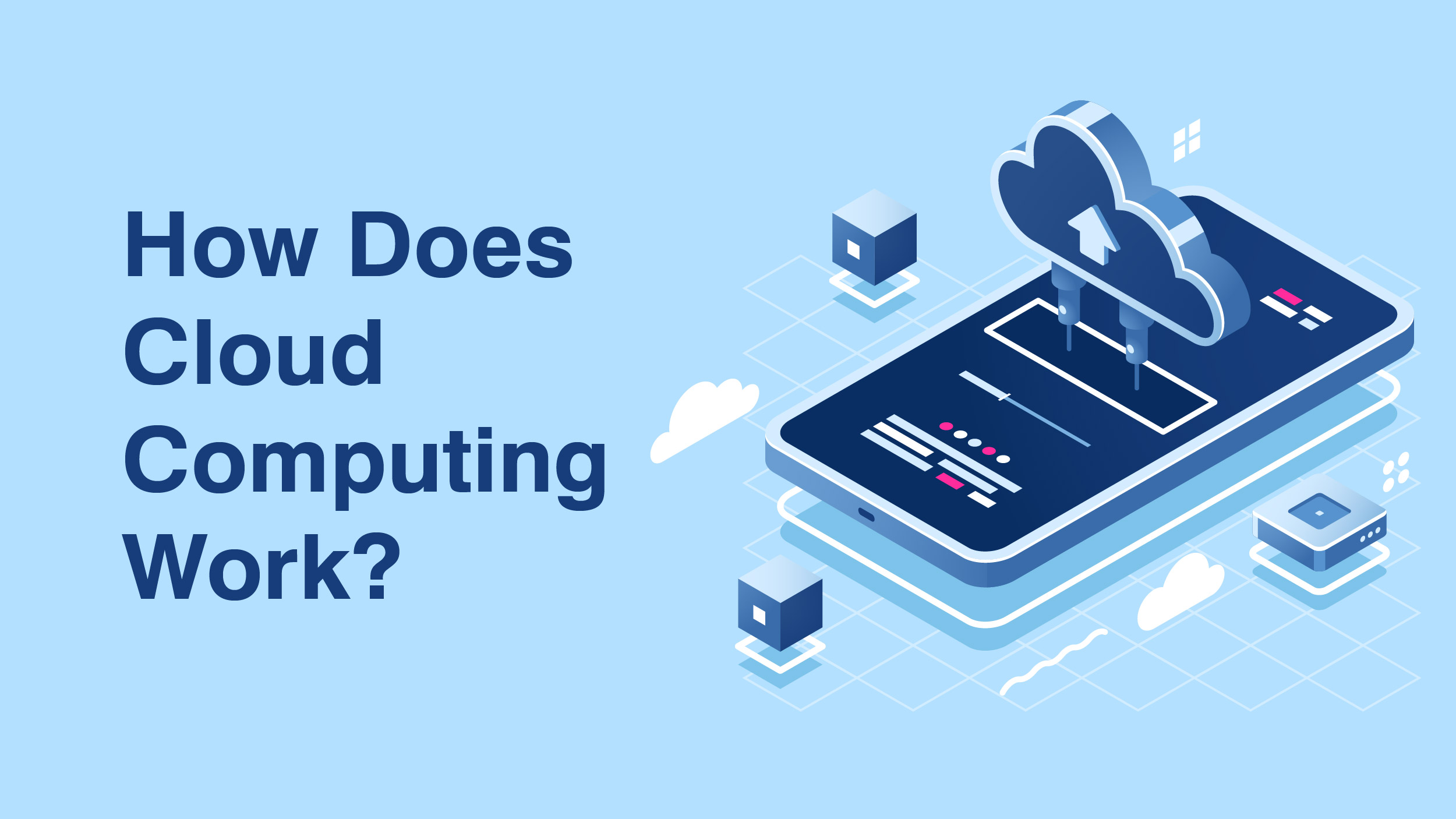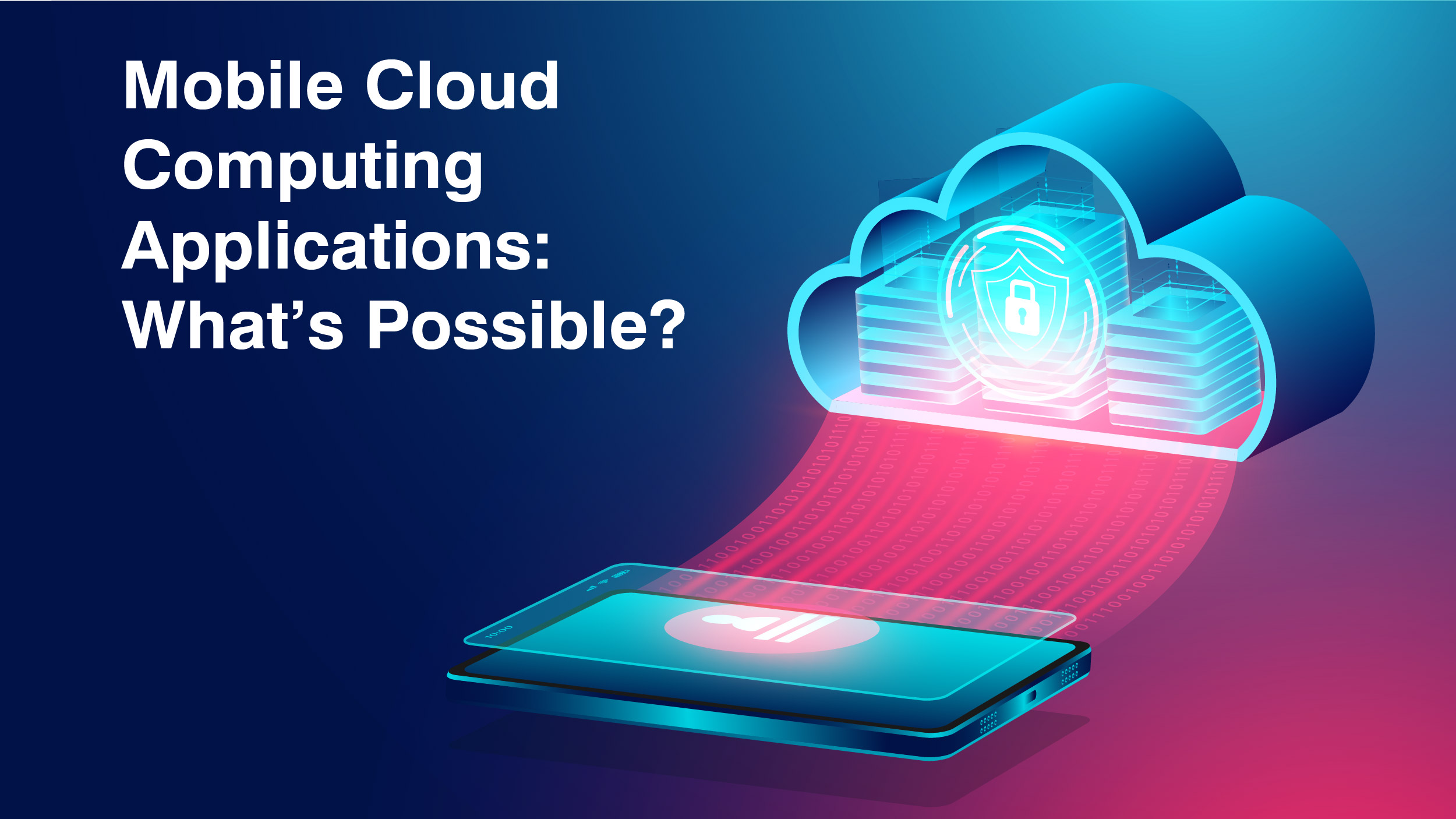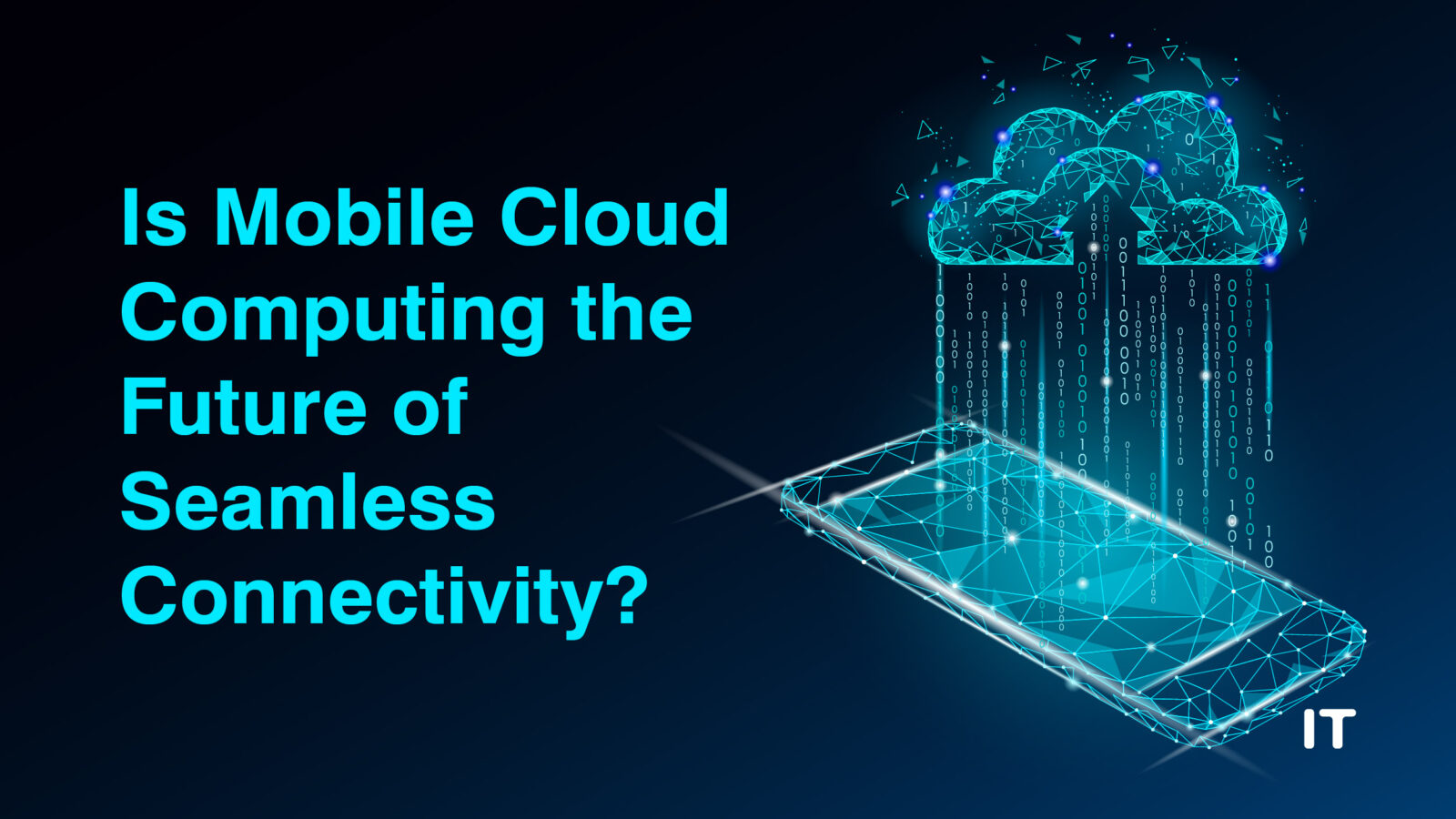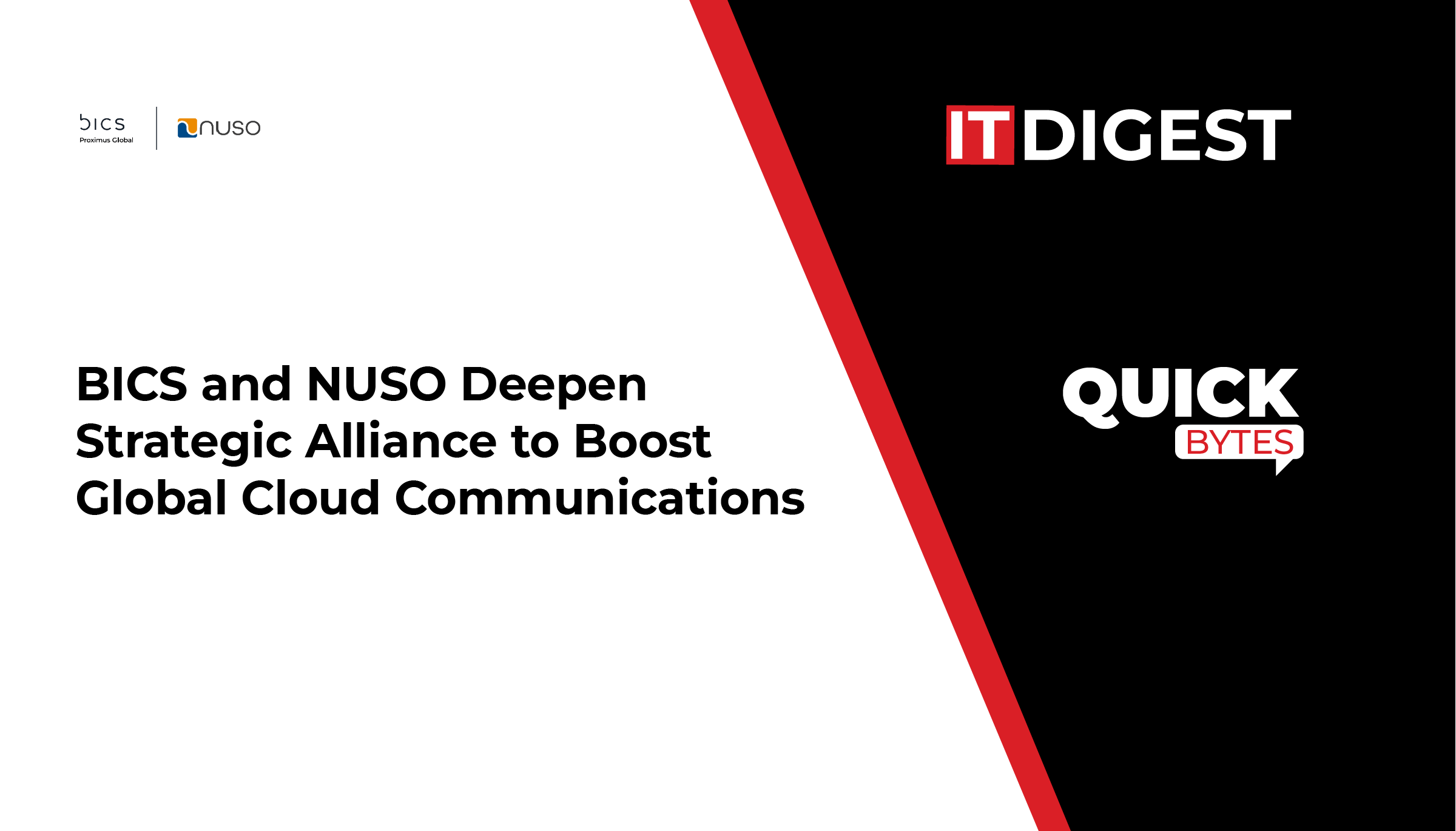Ever wondered how your smartphone manages to do some serious heavy lifting, like running complex apps and storing tons of data? Well, mobile cloud computing plays a vital role here. It’s a phenomenon that’s reshaping the way we interact with technology, transforming the very essence of mobility and accessibility.
Moving ahead, we’ll dissect mobile cloud computing in this blog, shedding light on its various applications and operational principles.
Let’s get started!
Also Read: Exploring Cloud Deployment Models: A Comprehensive Overview
What is Mobile Cloud Computing?
The fusion of cloud and mobile computing has given rise to a powerful phenomenon called mobile cloud computing (MCC).
Delivering computing resources, such as storage, processing power, and software, to mobile devices across a network—typically the Internet—is known as mobile cloud computing. It enables mobile devices to take advantage of the cloud’s capacity to improve their functionality, effectiveness, and efficiency.
How Does Cloud Computing Work?
 Mobile cloud computing involves the smooth transition between resources in both the cloud environment and mobile devices, with the aim of enhancing the mobile user experience. In this process, mobile applications send data requests to the cloud via the Internet. These requests are then handled by remote servers, which process them and provide the necessary response. The response is then presented to the mobile users, contributing to an improved overall experience.
Mobile cloud computing involves the smooth transition between resources in both the cloud environment and mobile devices, with the aim of enhancing the mobile user experience. In this process, mobile applications send data requests to the cloud via the Internet. These requests are then handled by remote servers, which process them and provide the necessary response. The response is then presented to the mobile users, contributing to an improved overall experience.
The mobile cloud computing architecture relies on four primary categories of cloud resources.
1. Distant immobile clouds
The phrase “distant immobile clouds” pertains to the virtual servers that are managed by cloud computing providers. An example of such servers can be found in Amazon Elastic Compute Cloud (Amazon EC2) instances. Developers are responsible for writing and deploying their application code on these virtual servers, which then handle and respond to data requests coming from mobile devices.
2. Proximate immobile computing entities
Proximate immobile computing entities refer to server machines located in close proximity to mobile users. They enhance Mobile Cloud Computing (MCC) by reducing latency issues and optimizing network performance. For instance, by configuring Amazon EC2 instances to a specific AWS Region or a nearby location, you can ensure faster access for end users.
3. Proximate mobile computing entities
Mobile cloud applications have the capability to utilize the idle processing power of neighboring mobile devices, such as smartphones and wearables, in order to enhance their own performance. These mobile devices are commonly known as proximate mobile computing devices.
4. Hybrid solutions
Hybrid MCC solutions employ a blend of the aforementioned resource types to enhance the efficiency of your business applications.
Benefits of Mobile Cloud Computing
Mobile cloud computing provides numerous advantages, such as:
- Improved Performance: Mobile devices have the capability to transfer resource-heavy tasks to the cloud, leading to quicker and more precise outcomes.
- Enhanced Productivity: Through the delegation of tasks to cloud-based systems, mobile devices can optimize battery usage and minimize energy consumption.
- Increased Functionality: Mobile cloud computing has opened up possibilities for new applications and services that were previously unattainable. These include augmented reality and virtual reality, which would not have been possible without this technology.
- Accessibility: The cloud offers the advantage of storing data, enabling users to access it conveniently regardless of location, time, or device.
Mobile Cloud Computing Applications: What’s Possible?
 A mobile cloud computing application refers to a software program that can be accessed over the internet using portable devices. In practical terms, there are numerous instances of mobile cloud solutions found in the real world.
A mobile cloud computing application refers to a software program that can be accessed over the internet using portable devices. In practical terms, there are numerous instances of mobile cloud solutions found in the real world.
1. Email
Gmail, Outlook, and Yahoo Mail are widely recognized mobile email platforms frequently cited as examples. When individuals access their emails through their mobile devices, they are utilizing mobile cloud technology.
2. Social Media
Mobile social networking empowers users to share real-time data through platforms like Twitter, Instagram, and Facebook. For instance, mobile users have the ability to store and exchange videos with other individuals.
3. Commerce
When you use a banking app or shop online on your phone, you’re diving into the world of mobile cloud computing, often abbreviated as MCC in mobile commerce. This tech relies on adaptable processing power to make things run smoothly.
4. Healthcare
Mobile healthcare, through the use of mobile cloud computing, enables the storage of large volumes of data in the cloud, which can be conveniently accessed using mobile devices. This technology facilitates easy and rapid retrieval of patient records while on the move.
Most In-Demand Mobile Cloud Computing Platforms
The idea of cloud computing originated in the 1960s, primarily linked to Digital Equipment Corporation and IBM. However, its widespread adoption increased further in 2006 when Amazon unveiled Amazon Web Services. Shortly thereafter, in 2008, both Google (with the beta version of its search engine) and Microsoft (with the launch of Microsoft Azure) entered the cloud computing arena. By 2013, Google had firmly established itself in the race.
In 2023, the leading contenders in the cloud computing sphere are Amazon, Microsoft, and Google. Here are the top 4 mobile cloud computing platforms to explore this year.
- AWS Amplify: Amazon Web Services
- Microsoft Datasync Framework
- IBM Mobile Cloud App
- Firebase: Google Cloud Platform Mobile App
Wrapping Up
Mobile cloud computing is a game-changer for businesses. It hooks up cloud services to mobile devices and gets stuff done, from emails and social media to online shopping.
It’s all about flexibility, saving cash, and getting things done in the blink of an eye. Although it’s not all smooth sailing – there are security and privacy issues to tackle.
In all of this, one thing is crystal clear: MCC isn’t going anywhere. It’s on the path to becoming bigger and better.

































